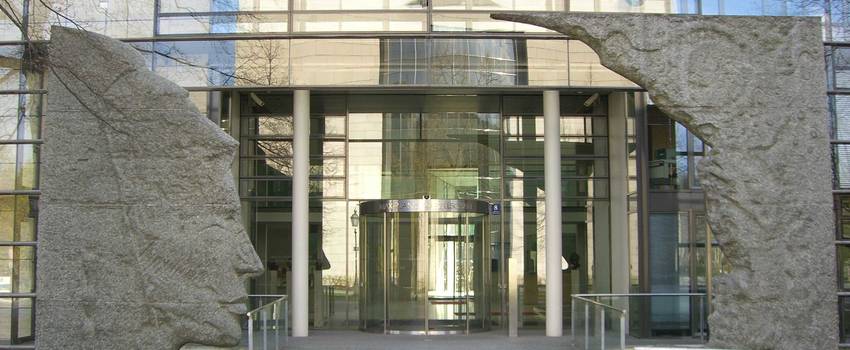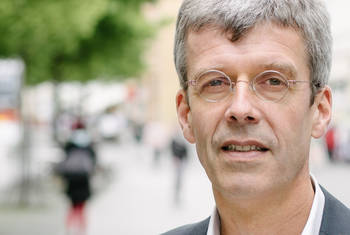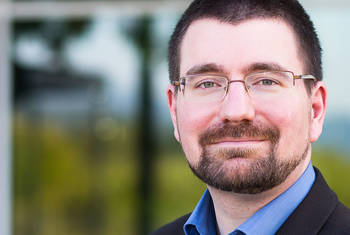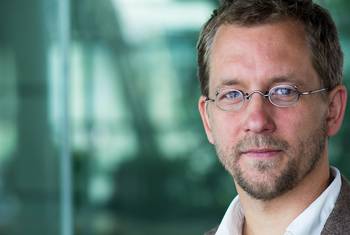Christoph Brumann How Is the UNESCO World Heritage Title Being Awarded and What Are Its Consequences?
Christoph Brumann is head of a research group at the Max Planck Institute for Social Anthropology. Further, he is Honorary Professor of Anthropology at the Martin Luther University Halle-Wittenberg. Previous positions include that of Heisenberg Fellow of the German Research Foundation, from 2008 to 2010; and, from 2009 to 2012, President of the German Association for Social Science Research on Japan. In 2013, he became member of the Academia Europaea. His research focus lies, among other subjects, on urban anthropology, traditions and cultural heritage, and international organisations.
Area of Research
Cultural Anthropology, Cultural Ethnology
since 2010
Head of Research Group
Max Planck Society (more details)
Max Planck Institute for Social Anthropology
since 2011
Honorary Professor of Anthropology
Martin-Luther-University Halle-Wittenberg (Martin-Luther-Universität Halle-Wittenberg)
2009-2012
President
German Association for Social Science Research on Japan (VSJF)
2008
Visiting Full Professor of Anthropology
University of Cologne (Universität zu Köln)
2007-2008
Visiting Full Professor of Anthropology
University of Tübingen (Eberhard Karls Universität Tübingen)
2004-2005
Visiting Full Professor of Modern Japan
Heinrich Heine University Düsseldorf (Heinrich Heine Universität Düsseldorf)
1999-2007
Lecturer
University of Cologne (Universität zu Köln)
Department of Cultural and Social Anthropology
1992-1998
Instructor
University of Cologne (Universität zu Köln)
Department of Cultural and Social Anthropology
2005
Habilitation
University of Cologne (Universität zu Köln)
Department of Cultural and Social Anthropology
1997
PhD in Anthropology
University of Cologne (Universität zu Köln)
1991
M.A. Degree in Anthropology
University of Cologne (Universität zu Köln)
- Member of the Academia Europaea (since 2013)
Fellowships
- Heisenberg Fellow of the German Research Foundation (DFG) (2008-2010)
- Foreign Research Fellow of the National Museum of Ethnology, Osaka (1998-1999)
- Habilitation Scholarship (DFG) (2001-2003)
 © Maximilian Dörrbecker
© Maximilian Dörrbecker
Max Planck Society
"The Max Planck Society is Germany's most successful research organization. Since its establishment in 1948, no fewer than 18 Nobel laureates have emerged from the ranks of its scientists, putting it on a par with the best and most prestigious research institutions worldwide. The more than 15,000 publications each year in internationally renowned scientific journals are proof of the outstanding research work conducted at Max Planck Institutes – and many of those articles are among the most-cited publications in the relevant field." (Source)
Institute
Max Planck Institute for Social Anthropology
"The Max Planck Institute for Social Anthropology is one of the world’s leading centres for research in socio-cultural anthropology. It was established in 1999 by Chris Hann and Günther Schlee, and moved to its permanent buildings on Advokatenweg 36 in Halle/Saale in 2001. Marie-Claire Foblets joined the Institute as its third Director in 2012. Common to all research projects at the Max Planck Institute is the comparative analysis of social change; it is primarily in this domain that its researchers contribute to anthropological theory, though many programmes also have applied significance and political topicality. Fieldwork is an essential part of almost all projects. More than 175 researchers work at the Institute, the great majority in one of its three Departments: ‘Law & Anthropology’ (Foblets); ‘Resilience and Transformation in Eurasia’ (Hann); ‘Integration and Conflict’ (Schlee). The Institute’s Library, the Research Coordination Unit, the IT Department and administrative staff assist the researchers in their work. The Institute has its own Guesthouse, and organises regular seminars and international conferences. It cooperates closely with anthropologists and other colleagues at the Martin Luther University, Halle-Wittenberg, and at the University of Leipzig" (Source)
Map
The UNESCO World Heritage title has become a powerful global brand. It influences people’s decisions of where to travel and conveys prestige and national pride. CHRISTOPH BRUMANN and his research group investigated how this title is being awarded and what its consequences are on the ground at the chosen sites. Brumann explains in this video that using a two-fold anthropological approach, the researchers found that, since 2010, national interests have become the guideline for the UNESCO World Heritage Committee decisions, often brushing aside expert advice. On the local level, they discovered that communities often had little influence on the management of the sites and that these were rather maintained in the line of national interests. These findings suggest an unexpected assertion of national interests in contrast to global institutions’ advice.
LT Video Publication DOI: https://doi.org/10.21036/LTPUB10429
World Heritage on the Ground: Ethnographic Perspectives
- Christoph Brumann and David Berliner ( eds.)
- Published in 2016
Shifting Tides of World-making in the UNESCO World Heritage Convention: Cosmopolitanisms Colliding
- Christoph Brumann
- Ethnic and Racial Studies
- Published in 2014









